Treasured islands: The Maldivian hotels leading the way when it comes to sustainability and ocean conservation
Sustainability has never been more luxurious than in the Maldives, where innovative methods are being employed to ease environmental pressures without sacrificing style, finds our Travel Editor Rosie Paterson.

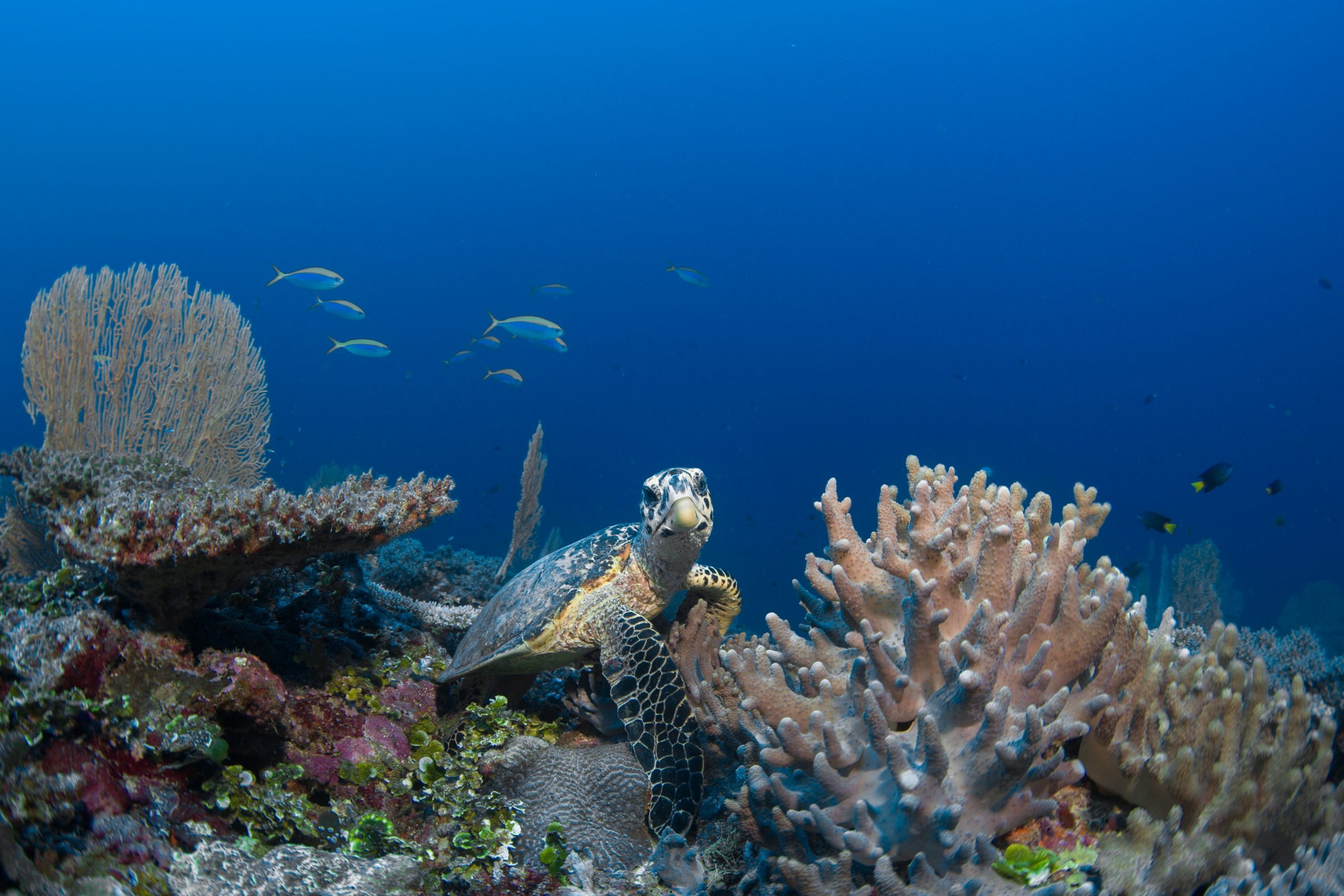
Exquisite houses, the beauty of Nature, and how to get the most from your life, straight to your inbox.
You are now subscribed
Your newsletter sign-up was successful
Last year, the Laamu Atoll, one of the most southern groups of islands in the Maldives, was designated a Hope Spot—the culmination of more than five years of collaborative research and conservation efforts between Six Senses Laamu and three non-governmental organisations: The Olive Ridley Project, Blue Marine Foundation and The Manta Trust. There are Hope Spots scattered across the world’s oceans, from the Northwest Passage in the Arctic Ocean to Lord Howe Rise in the Pacific. They have little in common in terms of geography, but all are ecologically significant and their protection is vital to the preservation of marine species or nearby human communities who rely on a healthy marine environment.
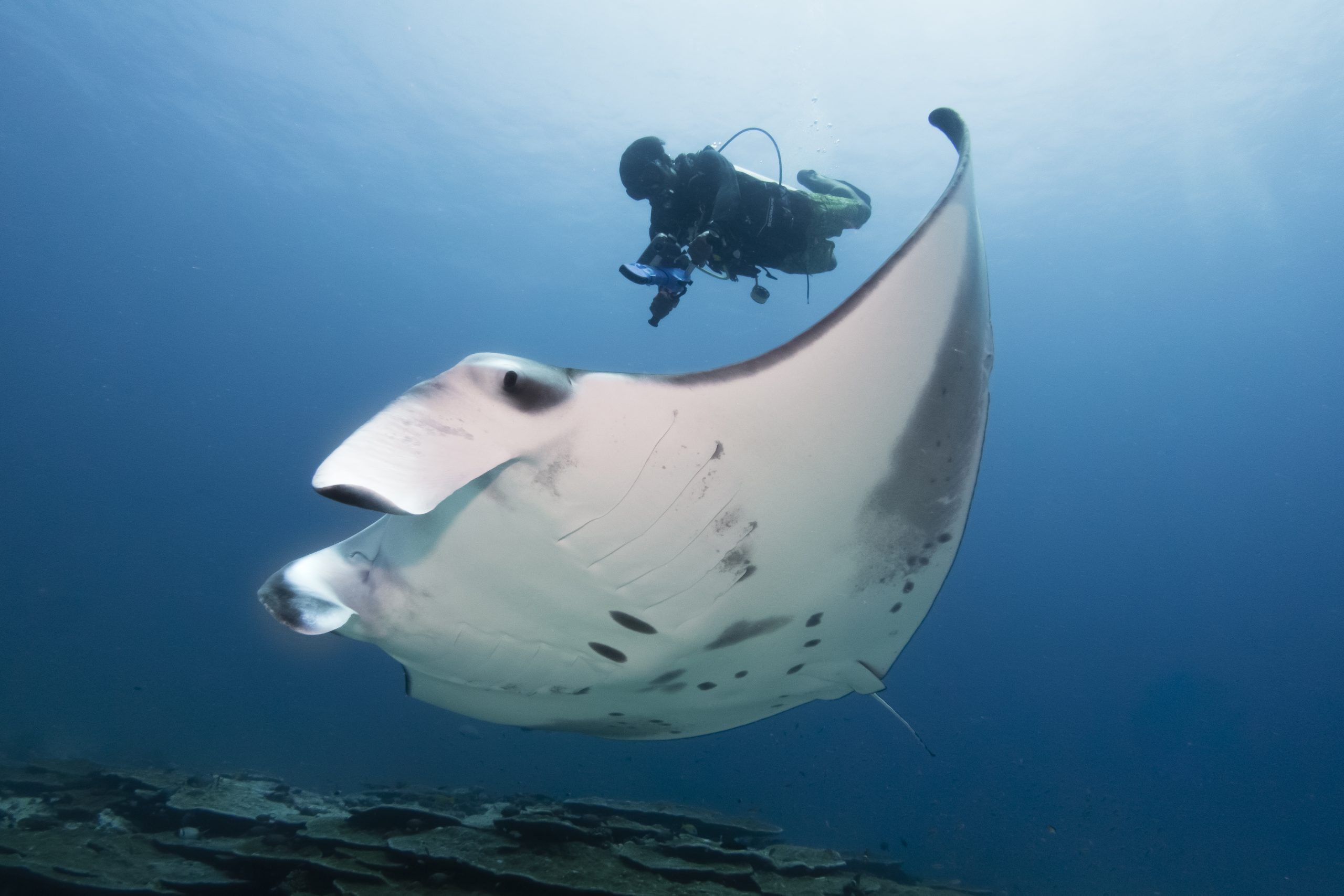
Laamu is one of the 26 atolls, comprising more than 1,000 coral islands, that make up the Maldives—scattered across roughly 35,000 square miles of the Indian Ocean like giant stepping stones. Across this archipelago, Maldivians, hotels and, more recently, the government have been fighting at the forefront of sustainable travel and the quest to find a more eco-friendly way of life. It’s a necessary fight—most of the Maldives is level with the sea (the highest point is 8ft); by 2050, multiple reports by NASA indicate that 80% of land could be under water.
At Baros, a Maldivian family-owned hotel, staff are preparing for the incoming ban on disposable shampoo and soap bottles and plastic bags—part of the government’s plan to phase out single-use plastic by 2023. New, refillable bottles by current provider Acqua di Parma are expected to arrive shortly.
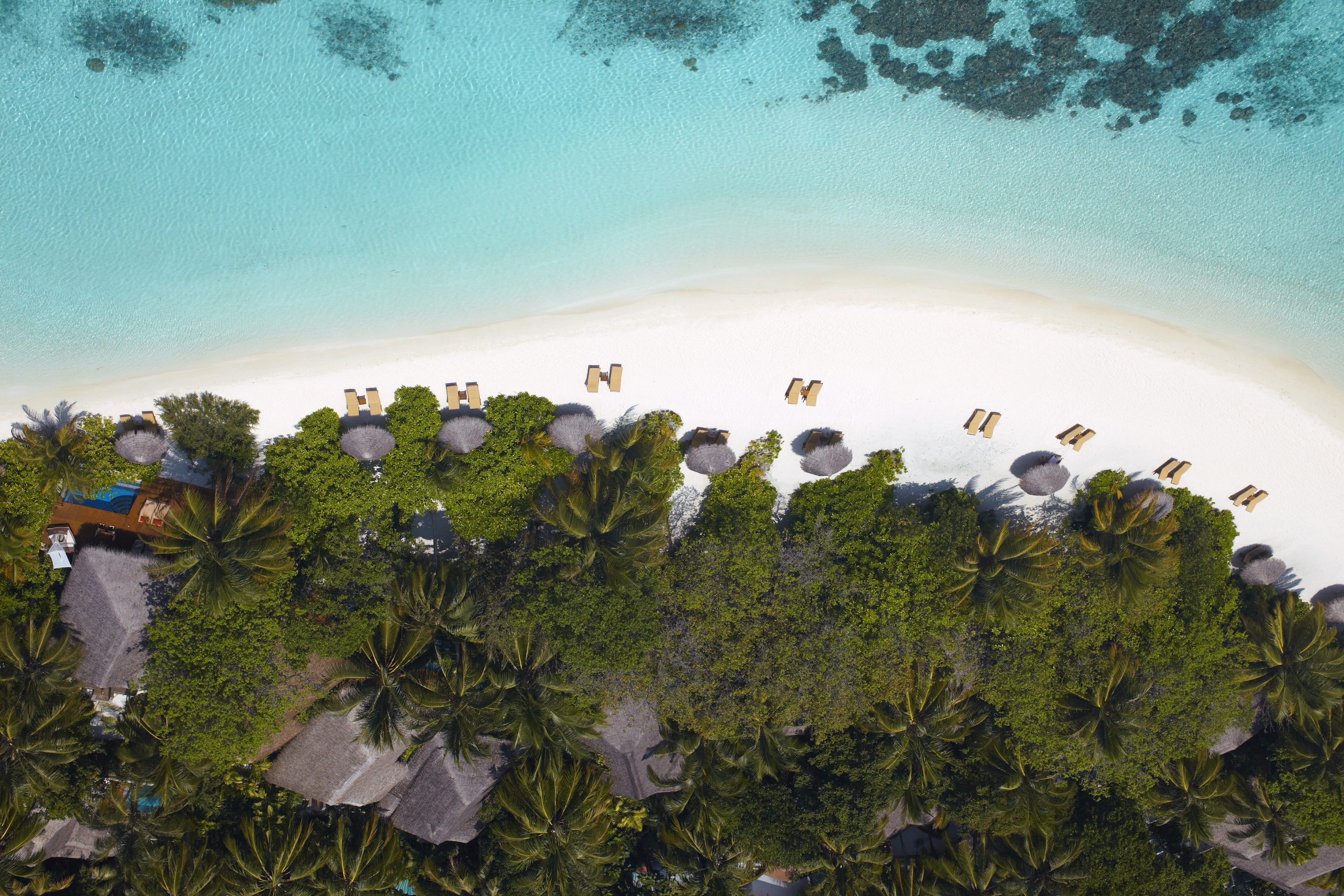
Baros was only the third hotel to open in the Maldives, back in December 1973, following the sudden influx of divers, mostly from Italy and Germany. At first, these trailblazing tourists stayed in makeshift huts, yards from the water, and fished for their supper. Nowadays, guests from all around the world sleep in somewhat more luxuriously appointed bedrooms, known as overwater villas. A former coconut plantation, the amount of dense foliage that carpets the coral sand sets Baros apart from more arid islands. More plants have been allowed to mature in and around the palms—one of the gardeners has been working at the hotel for more than 20 years—and, during the windier seasons, island life is set to the whispery soundtrack of ocean breeze passing through lush leaves. In and among these towering palms, you’ll find secluded sunbathing spots, set up with sunloungers and wooden boxes stuffed with towels, and, at the island’s heart, the colonial-style Sails Bar—in fact, the whole island feels rather like a tropical safari lodge. Above the bar, an exhibition of maps and artefacts charting the Maldives’ fascinating history feels like a precursor to the hotel’s fast-approaching 50th anniversary.
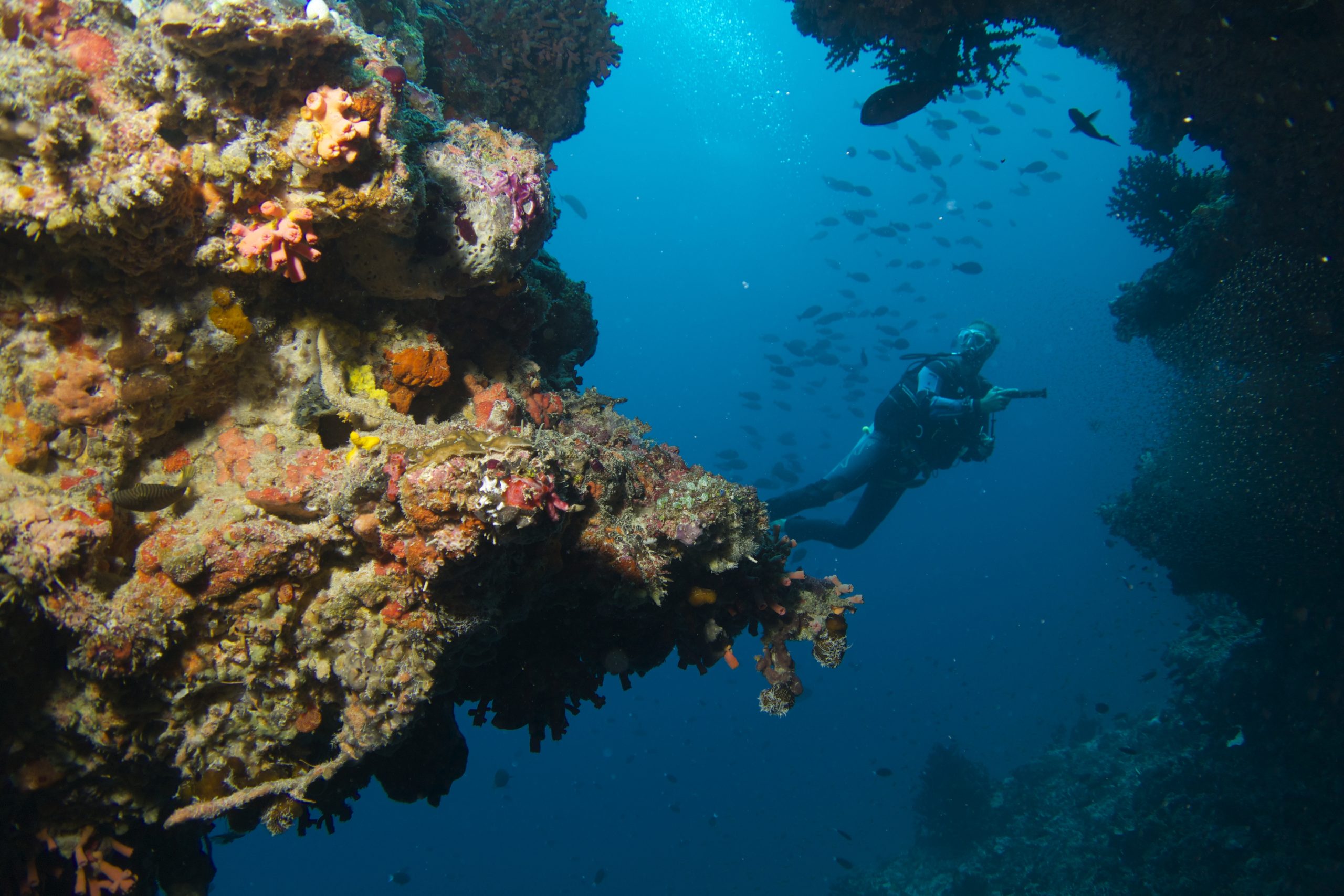
Diving, and now snorkelling, is still at the forefront of what the hotel offers, helped, in large part, by a truly breathtaking house reef that hugs one side of the island. Beginners are invited to find their feet (or flippers) in a shallow lagoon, protected from deeper water by a break wall. Everyone else is encouraged to swim beyond it into a world of coral that crackles and pops, fish of every conceivable shape and colour and 23 (and counting) resident turtles. Reef sharks patrol the drop-off—the point at which the reef appears to abruptly end and hurtle down into an inky abyss—swimming with silky smooth and languid strokes. Three black-tipped ones passed by my mask in little more than an hour, each closer than the next, all equally uninterested. Most are likely older than the hotel itself. They pick up speed at night, when they pick off injured and feeble fish from the reef. One was missing its dorsal fin—an anomaly because sharks typically cannot swim without one. It may have been born that way or fallen victim to the shark-fin industry.
Back at Six Senses Laamu, there are weekly, informal talks on sharks (complimentary ice cream included). Sharks play a critical role—if they disappear, their environment will change dramatically or cease to exist altogether. As well as the growing shark-fin industry, these slow-to-mature animals are also at risk of habitat loss, fishing nets and pollution. Unfortunately, there are only 17 protected shark sanctuaries in the world—the Maldives is one of them—and finning occurs unabated across large swathes of the Pacific and Indian Oceans.
Unfortunately, there are only 17 protected shark sanctuaries in the world—the Maldives is one of them—and finning occurs unabated across large swathes of the Pacific and Indian Oceans.
Sign up to the hotel’s sustainability tour and you’ll get a behind-the-scenes look at the hybrid diesel and solar-powered generator (the waste energy heats the shower and tap water), on-site tailor (the staff’s uniforms are made on site and waste material turned into napkins and fabric coasters), carpentry studio and Earth Lab. The latter is an inventor’s dream. To one side, glass waste is crushed and turned into bricks or moulded into resin creations, like the sinks in the washrooms next to Longitude restaurant. To the other, a small-scale aquaponics system is being trialled. The long-term plan is to construct a larger one, increasing the amount of food that can be produced on the island—the kitchen garden (above which you can dine in the treetop Leaf restaurant) already grows about 40 types of edible plants not normally found in this part of the world. It’s a necessity as much as it is a passion project: 90% of goods in the Maldives are imported and, according to Six Senses’s sustainability and community outreach manager, Adam Tholhath, a hotel such as this one is responsible for producing three times as much waste as a local island. Mr Tholhath is already challenging suppliers to rethink their packaging, especially single-use styrofoam boxes; he showed me a cardboard alternative that comes with compostable jute and bamboo fibre insulation. He is aiming to get the hotel to zero waste.
Exquisite houses, the beauty of Nature, and how to get the most from your life, straight to your inbox.
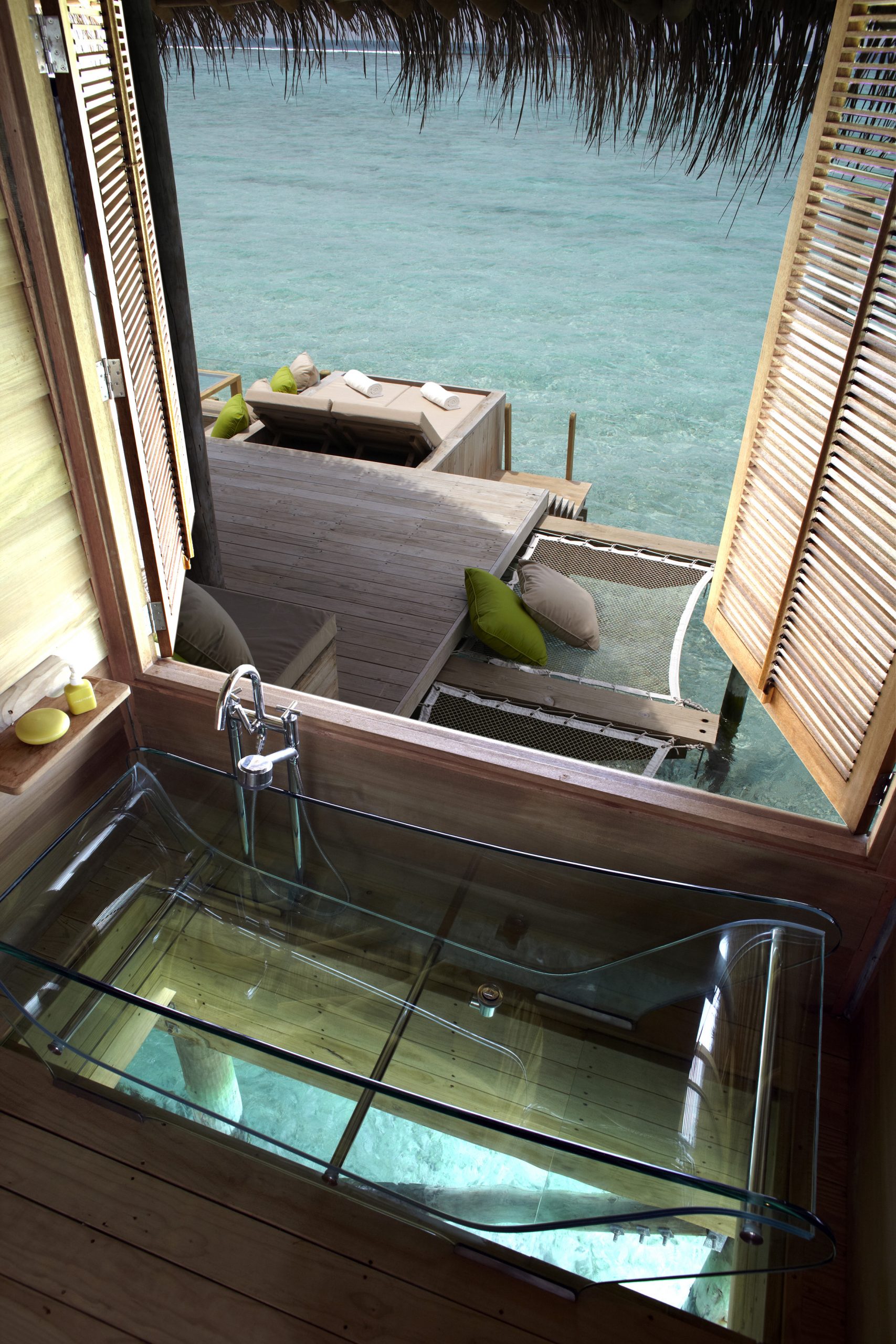
The hotel itself is nothing short of extraordinary—a sort of floating, fantasy treehouse, crafted out of reclaimed timber from New Zealand and local wood. The hotel’s main sprawling structure is a series of single and double storey, overwater, open-air spaces connected by walkways. There are few railings. Instead wood gives way to ocean, save for a few heavy-duty rope nets that act as hammocks, flush with the floor.
The Six Senses is similar in style to another hotel, Gili Lankanfushi; both practice something called passive conservation—or leaving Nature alone to do what it needs to do. Swim around either and you’ll notice patches of seagrass. They look a little sinister at first, like dark and muddy rocks, but dip beneath the surface and there’s an underwater jungle, fronds in all shades of green, twisting and turning lazily in the current—a nursery for juvenile fish and vital source of turtle food. Unfortunately, competitor hotels have taken to removing them for aesthetic reasons.
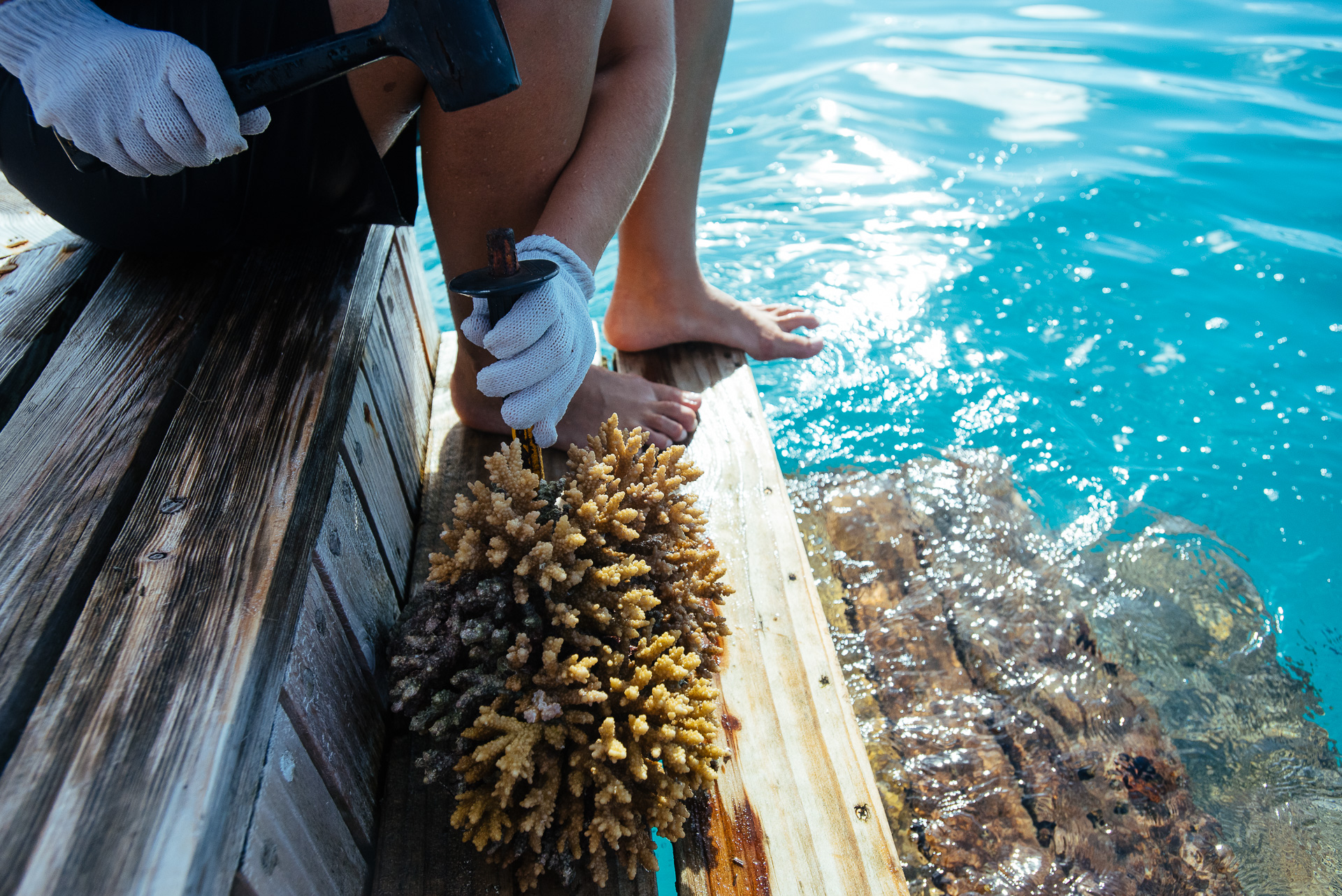
A more hands-on approach is required when it comes to coral. In 2016, rapidly rising sea-surface temperatures caused coral reefs around the world to bleach. Although reefs have often bleached before, scientists are concerned that, this time round, they may not have the strength to bounce back properly because of added pressure from human stressors. At Gili, marine biologists are weaving fragments of healthy coral into 16ft-long ropes and leaving them to mature, suspended in nutrient-rich water and safe from predators on the seafloor. Once large enough, the fragments are transplanted onto the reef.
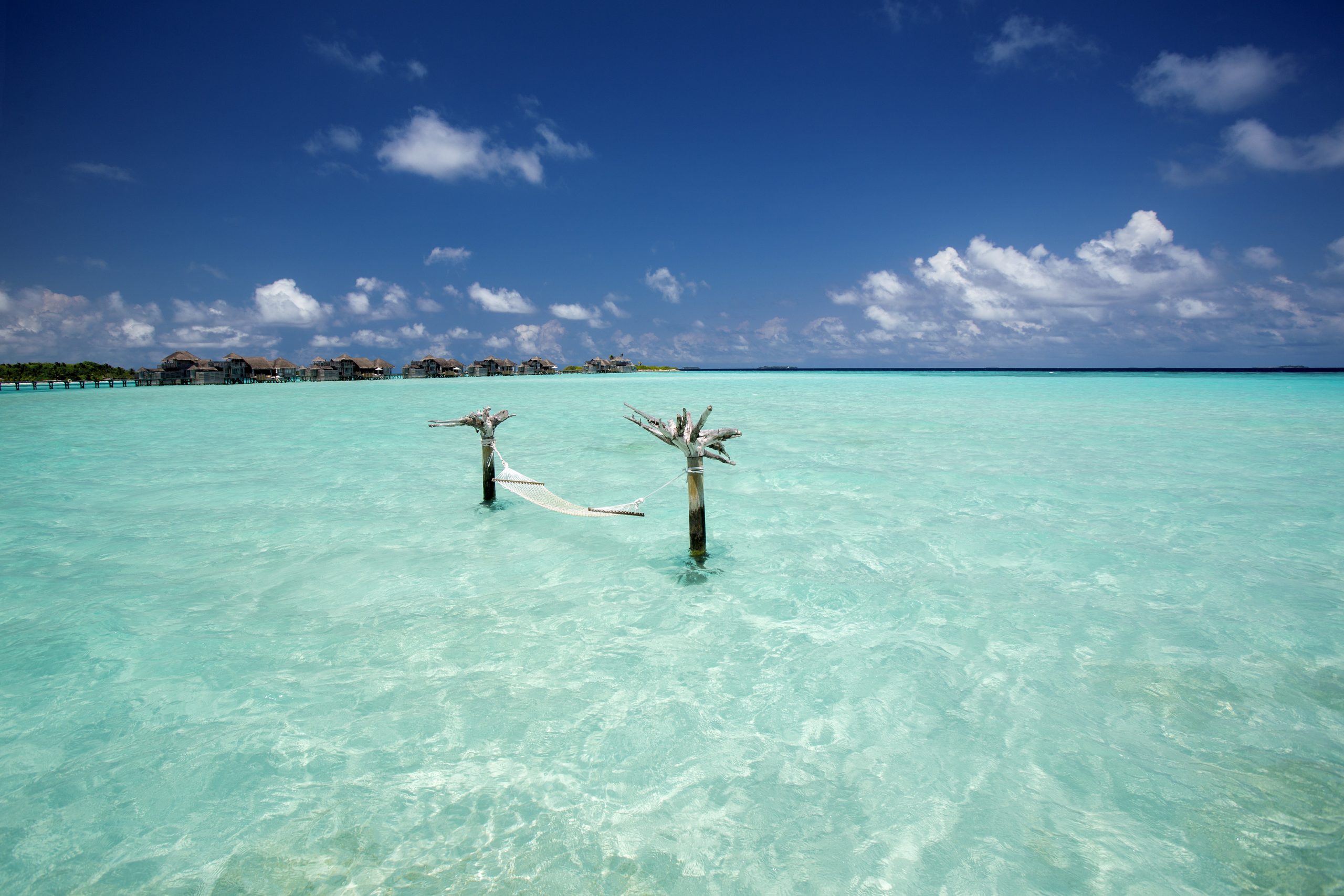
It’s hard to resist Gili’s charms and there’s a sense among guests and staff alike that you’re all in on a wonderful secret. It’s not the most remote island, as a neighbouring island is home to a fishing warehouse, but this means that Gili’s chefs get first pick of the daily catch—it’s adopted a Robinson Crusoe-style mentality (there’s a copy of Daniel Defoe’s classic in every room). Plastic and shoes are banned (you’ll soon get used to padding around barefoot), food waste is composted, organic toiletries come in refillable, pastel-coloured earthenware bottles and there’s an organic vegetable and herb garden. The indoor-to-outdoor style bedrooms are rustic (in the best sense of the word; don’t worry, there’s also a pillow menu), constructed out of bleached wood that looks as if it had washed up that morning after months at sea. Keep an eye out for stingrays from your terrace (they like to bury themselves in the sand) or, come night, stargaze from your rooftop terrace.
Plastic and shoes are banned
Back on Baros, the resident marine biologists—including Suga and Ambria—have come up with a unique way for harvesting coral: setting the healthy fragments in a reef-friendly cement cube that mimics the coral’s normal limestone base and letting it acclimate in shallow water before moving it out onto the house reef. Guests can get involved for free. The method took some trial and error—Ambria originally tried setting the pieces in a silicone cupcake tray, but it drifted up from the seafloor and got carted away by an inquisitive parrot fish—but now boasts a more than 50% success rate. The process is repeated using a wide variety of coral species because different fish are drawn to different corals—in one of the island’s fish identification classes you’re encouraged to remember as many as possible.
Over drinks, Baros’s on-site director of PR and communication, Svenja, mentions that she rarely leaves the island or country. ‘Look around you,’ she says, ‘why on earth would you?’ Why on earth indeed.
At a glance Rosie Paterson’s itinerary
Gili Lankanfushi
A tiny slice of paradise that never manages to feel too busy despite its proximity to the airport. There are 45 over-water villas—including seven stand-alone Crusoe Residences and the spectacular Private Residence—and one of the Maldives’s most beautiful spas. Guests have their own Friday to look after them for the duration of their stay and bamboo bicycles on which to get around.
Baros
Less beachy and more sophisticated. Baros is a 25-minute speedboat ride from the airport, but feels wonderfully remote. Come for the marine life; stay for The Lighthouse restaurant’s superlative lobster bisque. The Pad Thai also deserves a mention, as does the optional picnic marooned on a sandbank. There are 45 beach villas and 30 water ones, some with private pools.
Six Senses Laamu
An adult’s playground—although children are equally well catered for—with 97 beachfront and water villas. Plump for the latter and choose between a sunrise or sunset view. A surfer’s paradise, Six Senses is home to one of the best breaks in the Maldives.
Turquoise Holidays offer 10 nights in the Maldives, from £4,899 per person. This includes three nights at Baros, four nights at Gili Lankanfushi and three nights at Six Senses Laamu on a B&B basis. This includes inter-island speedboat and internal flights as well as international flights. Qatar Airways operates five daily flights between London Heathrow and Male, via Doha. Qsuite is available on both legs and first-class cabins are available aboard the A380 aircraft
Follow Rosie Paterson on Instagram @rosielkpaterson
Rosie is Country Life's Digital Content Director & Travel Editor. She joined the team in July 2014 — following a brief stint in the art world. In 2022, she edited the magazine's special Queen's Platinum Jubilee issue and coordinated Country Life's own 125 birthday celebrations. She has also been invited to judge a travel media award and chaired live discussions on the London property market, sustainability and luxury travel trends. Rosie studied Art History at university and, beyond Country Life, has written for Mr & Mrs Smith and The Gentleman's Journal, among others. The rest of the office likes to joke that she splits her time between Claridge’s, Devon and the Maldives.
